SUMMARY
This is AI generated summarization, which may have errors. For context, always refer to the full article.
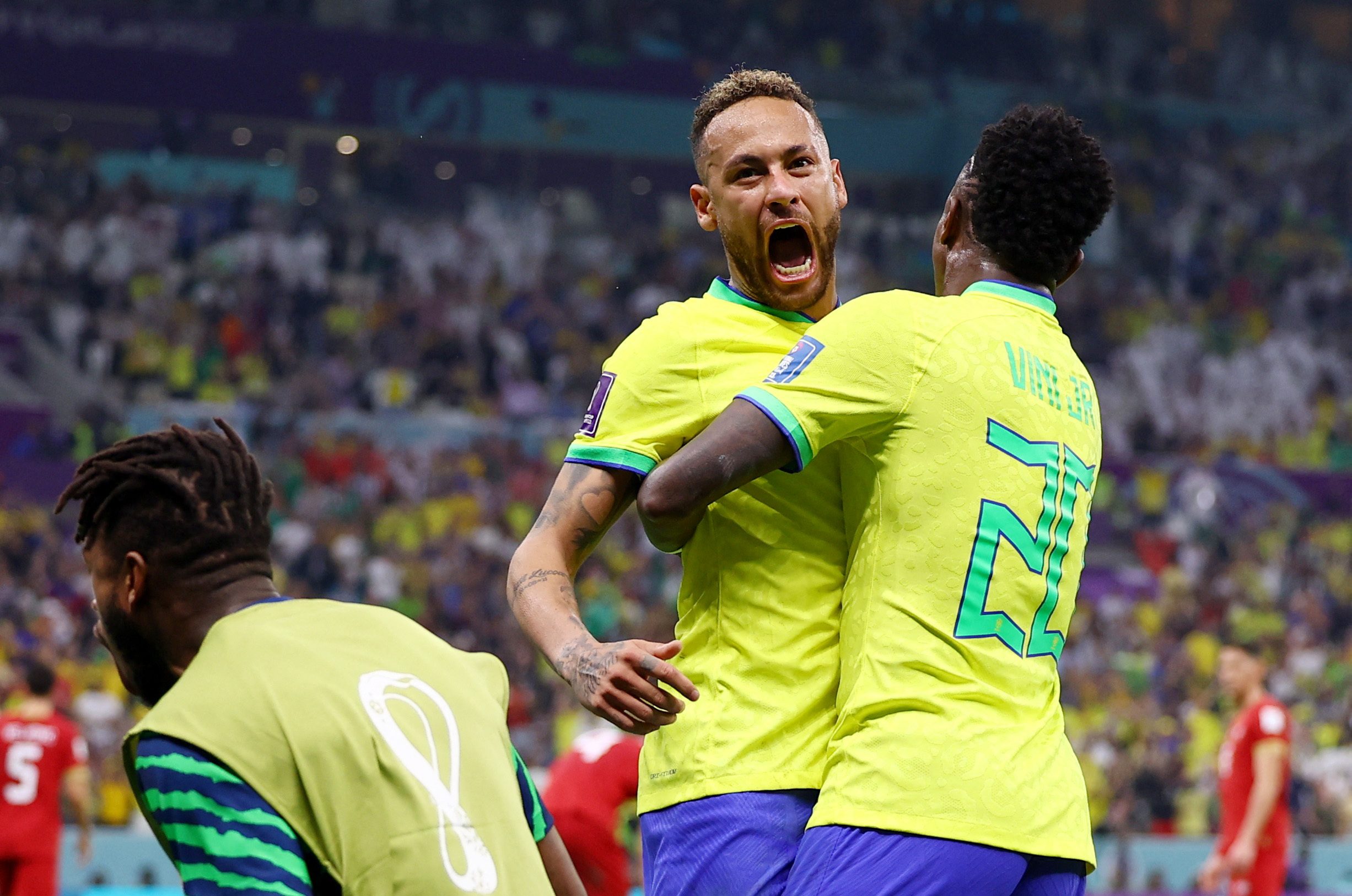
This is Part 7 of Rappler’s World Cup 2022 series.
- Part 1: Group of Underdogs
- Part 2: Group of War
- Part 3: Group of Living Legends
- Part 4: Group of Life after Death
- Part 5: The Hungriest Group
- Part 6: The Group So Close Yet So Far
Group G – Brazil, Cameroon, Serbia, Switzerland
After every World Cup draw, pundits designate a Group of Death, in which all four teams have the greatest capability of going deep into the tournament.
The term was coined by Mexican journalists after the draw for the 1970 tournament, describing the group with England, Brazil, Czechoslovakia, and Romania as “Grupo de la Muerte.”
The 2014 Group of Death included eventual champions Germany, Ghana, Portugal, and the USA.
In 2018, Germany was back in the Group of Death with Mexico, South Korea, and Sweden. The defending champions of course famously died in the group stage after being shut out by Mexico and South Korea.
In South Africa 2010, this designation went to Brazil, Ivory Coast, Portugal, and North Korea – Cristiano Ronaldo’s second World Cup.
Sometimes, analysts can’t decide. In 2006, there were two Groups of Death – Group C with Argentina, Ivory Coast, Serbia and Montenegro, and Netherlands, and Group E containing Italy, Ghana, Czech Republic, and USA.
There is no set formula to identify the Group of Death after each World Cup draw. It’s all completely subjective and intuitive.
Some like to cite the world rankings. If we were to do that, then this year’s group of death would be B with England, Iran, USA, and Wales which has the highest average rank and the smallest range.
Again, when it comes down to it, once the games begin, these rankings become irrelevant and it all boils down to preparation, performance, and execution.
In my Group of Death, there are four teams who collectively have the strongest capability of going deep into this tournament.
During the Cold War era, the Socialist Federal Republic of Yugoslavia was a regular qualifier for the World Cup. Between 1950 and 1990, Yugoslavia made it into the final tournament seven times, five of those graduating out of the group stage.
In the post-Cold War era, they dropped the Socialist and qualified for France 1998 as the Federal Republic of Yugoslavia, achieving the round of 16.
The country of Serbia and Montenegro accomplished a lone qualification in 2006. The country now returns to the finals for the third time as Serbia.
Regardless of name and political formation, the FIFA member now called Serbia has one of the highest and most consistent qualification rates, present a total of 13 out of 22 tournaments held, including the first one in 1930 when they entered as the Kingdom of Yugoslavia.
They haven’t tasted the knockout rounds since they were the Federal Republic in 1998, so this current generation qualifying for the third time as Serbia will be on a serious mission, lead by their star striker Aleksandar Mitrović, who has scored an astounding 50 goals in only 76 international matches and 93 in 169 appearances for Fulham.
Mitrović will be the guy on top that midfielder and Serbia’s most capped player Dušan Tadić will be looking for. Tadić himself is a scoring threat, having tallied 95 goals and counting in five seasons with Ajax. Tadić and Mitrović will be leading a determined Serbian drive to put them back in the latter stages of the tournament.
The Swiss may have been a neutral party during the Cold War, but in football they definitely take sides. Of their 11 World Cup campaigns, Switzerland has broken into the knockout stages seven times. Since 1994, they have made it into the round of 16 in 80% of their outings.
I think mathematically, you can bet your francs the Swiss will raise that percentage this time around, coming to the desert with some highly decorated stars, not the least of whom is attacking midfielder Xherdan Shaqiri.
With championship experience in the top leagues of Germany, Italy, England, and Switzerland, Shaqiri has won the Champions League final and the Club World Cup with both Liverpool and Bayern Munich.
Captain Granit Xhaka has been a mainstay in the top two leagues of Europe – four seasons in the Bundesliga with Borussia Mönchengladbach and the past seven with Arsenal.
Forward Breel Embolo of Monaco will likely line up in the match with Cameroon, providing a poignant matchup against the country of his birth.
Shaqiri and Xhaka provided some of the most exciting highlights in Russia in 2018 on their way to Switzerland’s fourth round of 16 berth since 1994. They fully intend to add to that highlights reel in Qatar.
One of the most storied teams in Africa, Cameroon are going into their eighth World Cup qualification, the most from that continent. The Indomitable Lions have won the Africa Cup of Nations five times, second only to Egypt’s seven, and finished as runners-up in the 2003 FIFA Confederations Cup, the highest achievement on the world stage by an African country.
Cameroon’s history is peppered with names of superstars instrumental in putting the country on the map as a source of talent for the biggest leagues in Europe, not the least of whom is current national team head coach Rigobert Song who stormed through the top flights of England, Germany, France, and Turkey, featuring in four World Cup campaigns as a player.
Song’s experience as a stellar performer in four different European leagues will come in handy for his first World Cup campaign as manager of a squad assembled from clubs in 13 different countries on four continents.
Goal-scoring specialist and captain Vincent Aboubakar has bagged 11 tallies in 33 matches for Al Nassr in the Saudi Pro League after successful championship stints in Portugal and Turkey.
Known for a creative very exciting style of play, Aboubakar leads the Cameroonian attack with 33 goals in 91 caps, alongside Bayern Munich’s Choupo-Moting who has been instrumental in the German giants’ postseason campaigns, including a Club World Cup championship in 2020.
My American friends are probably familiar with defender Olivier Mbaizo, who has been part of Philadelphia Union’s spate of successes in the 2020’s. With an inspiring coach who can relate closely with these players, it should not come as a surprise to many if Cameroon survive deep into this tournament.
This brings me to Brazil, the perennial favorites to win every single soccer championship there is. One reason why this is the Group of Death is that Brazil, even at their No. 1 world ranking, is currently in a very vulnerable state.
The team, the country, the fans may all deny this, but I can’t see them winning the championship this year. In order to understand why, one needs to look back to those championship-winning Brazilian teams of past eras.
There is no doubt that the Brazil squad in the World Cup today, like all the other Brazil squads, are just as loaded with talent, with guys like Thiago Silva, Casemiro, Fabinho, Dani Alves, and of course Neymar.
However, the great world champion Brazilian teams packed with phenomenal players always had a central leader on the field who was charismatic, and who had the character to command the respect of an entire team overflowing with greatness.
Those championship-winning generations were led by guys like Cafu and Ronaldinho, Romario and Dunga, Socrates and Garrincha, and of course the greatest player of all time Pele. It’s that charismatic inspiring figure that a Brazil national team needs to unify the overwhelmingly talented collection of players they inevitably come to the World Cup with.
Brazil has not had that kind of leadership in a long while, and they still don’t. Consensus is that Neymar is the best Brazilian player today.
Beyond a doubt, Neymar is the best player among a collection of great Brazilian players. He is his national team’s leading scorer with 75 goals.
For the three clubs he has played for professionally, Neymar has tallied 357 in 573 games with Santos, Barcelona, and Paris Saint-Germain. He scores goals; that’s what he does.
But I don’t see the kind of leadership in Neymar that inspires and unites a squad of great players. In any case, Qatar 2022 is Neymar’s tournament; it’s his turn in the Brazilian limelight.
He will produce some great performances along with the other great players on the Brazilian squad. But that’s the problem I’m seeing – without that leader to unite them as a team, Brazil will be just another group of great individual players in Qatar.
Group G standings prediction
It’s a toss-up among Brazil, Cameroon, Serbia, and Switzerland.
(Next: Part 8 – The Group of Asia’s Hope)
– Rappler.com
Kokoy Severino is a career educator and nationally certified youth soccer coach in the United States who now lives in his home country of the Philippines. For over 23 years, he implemented the beautiful game as a gang-intervention program in high-poverty urban school districts in the Greater Houston area of Texas. He has also worked with economically-disadvantaged communities in the Philippines, using football to mentor youths out of poverty. He is on the coaching staff of the Football for Peace movement, the Elmer Lacknet Bedia Football Academy, and a core member of Initiatives and Hearts for Indigenous People, a collective of volunteer soccer coaches who work with youths in poverty, particularly among the marginalized ethnic minorities of the Philippines.
Add a comment
How does this make you feel?


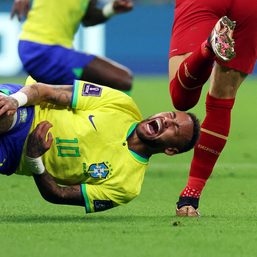
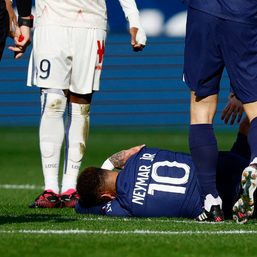
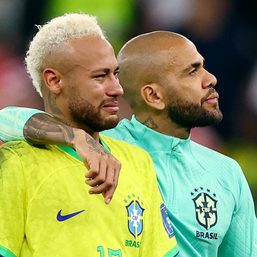


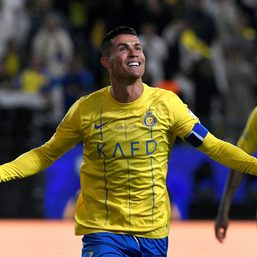
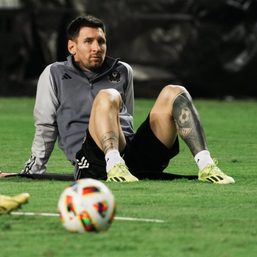

There are no comments yet. Add your comment to start the conversation.